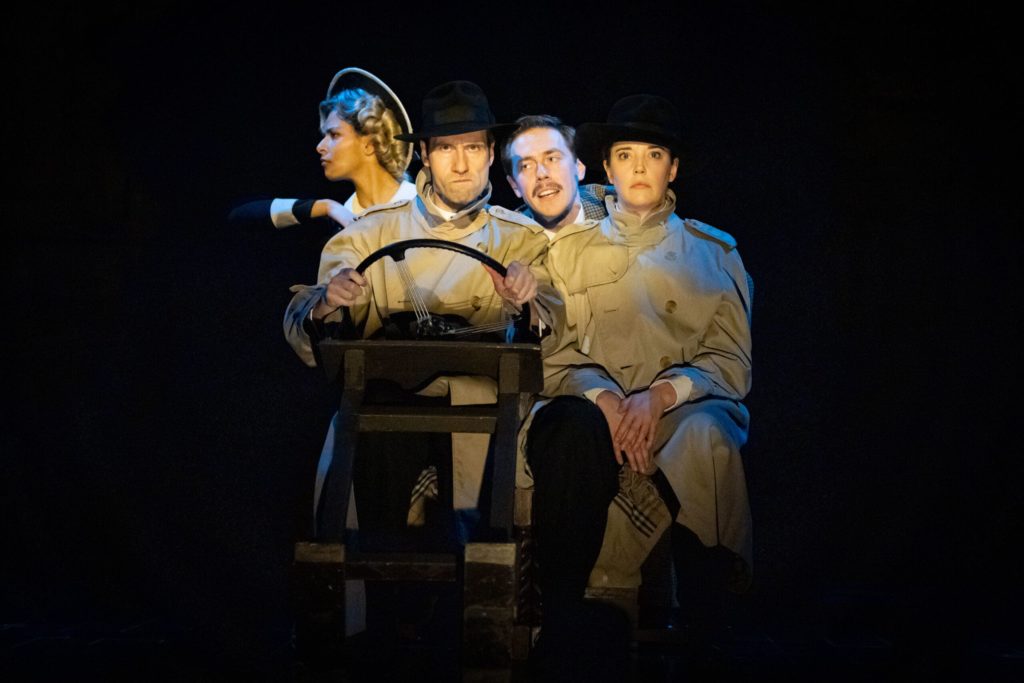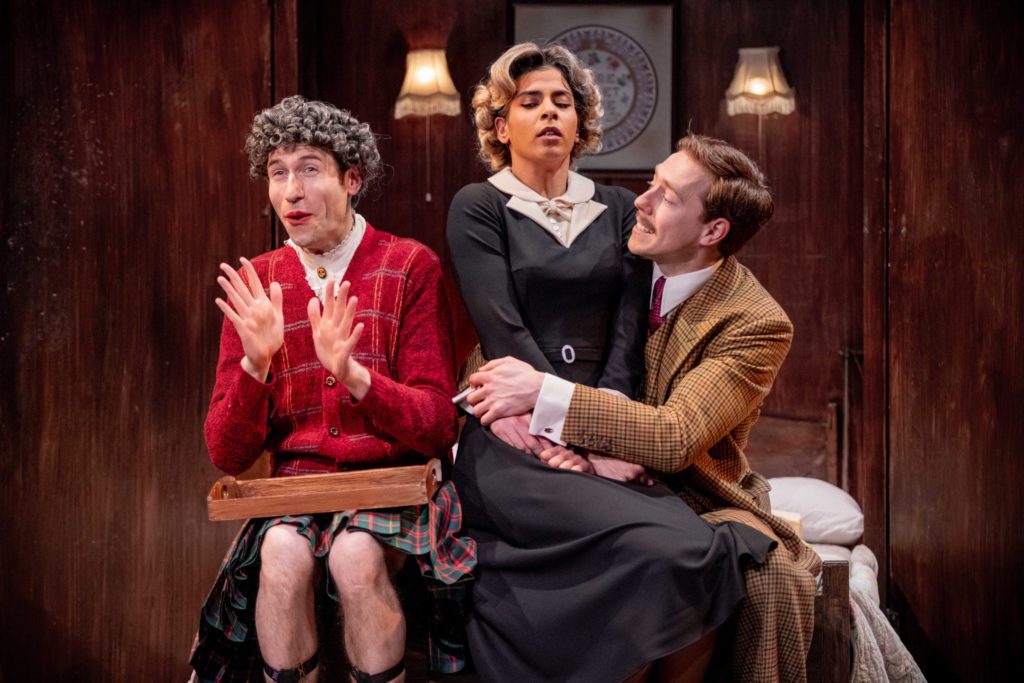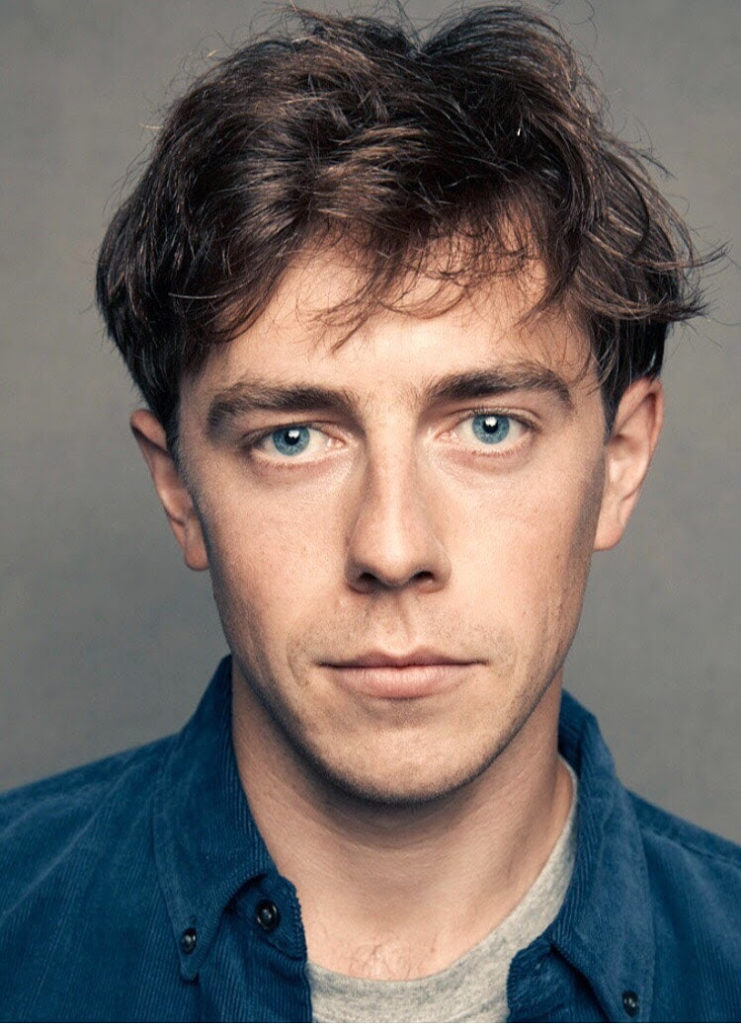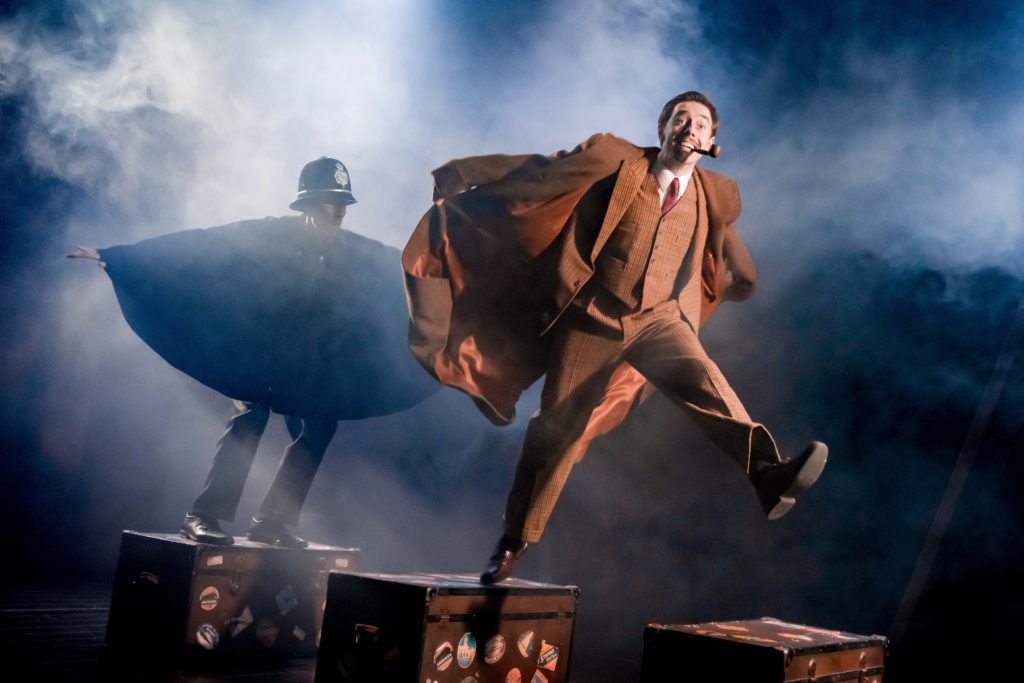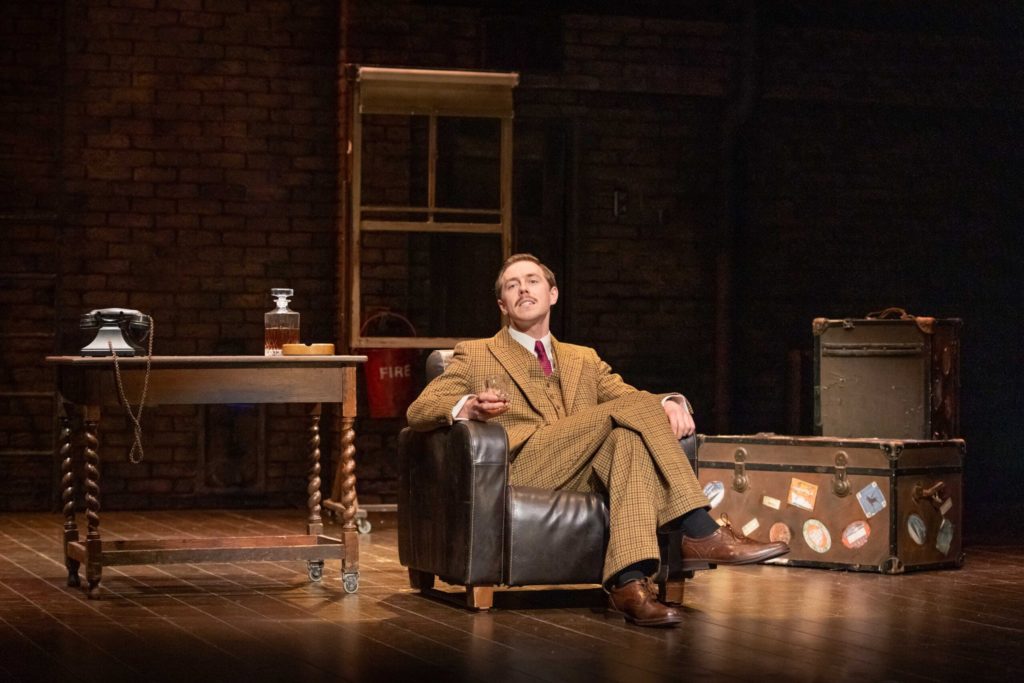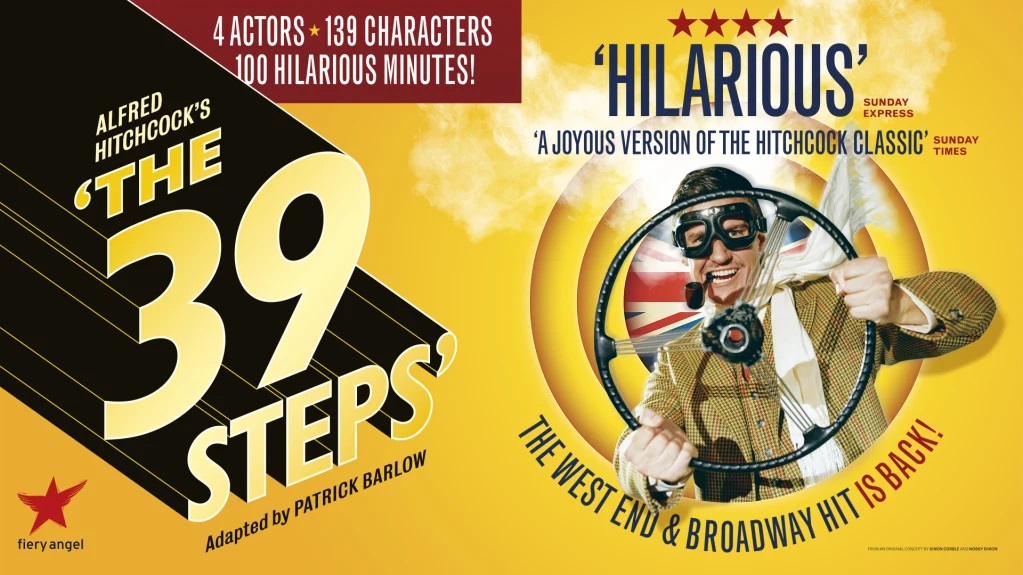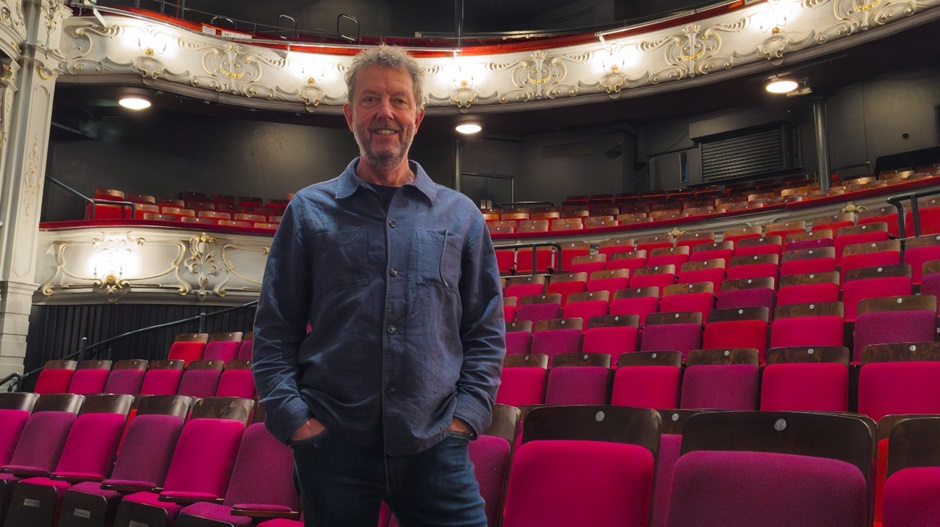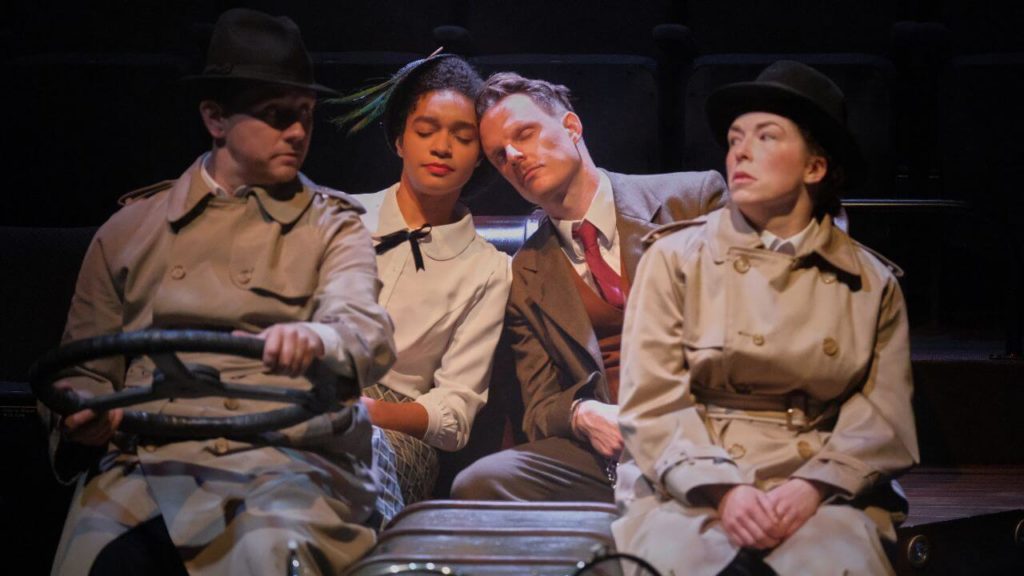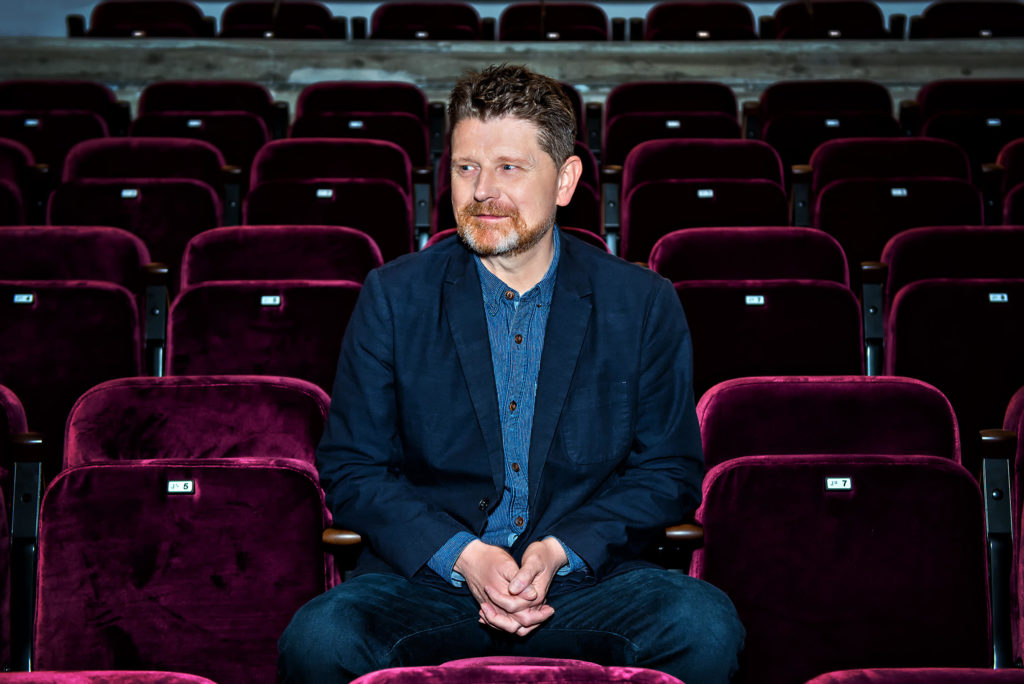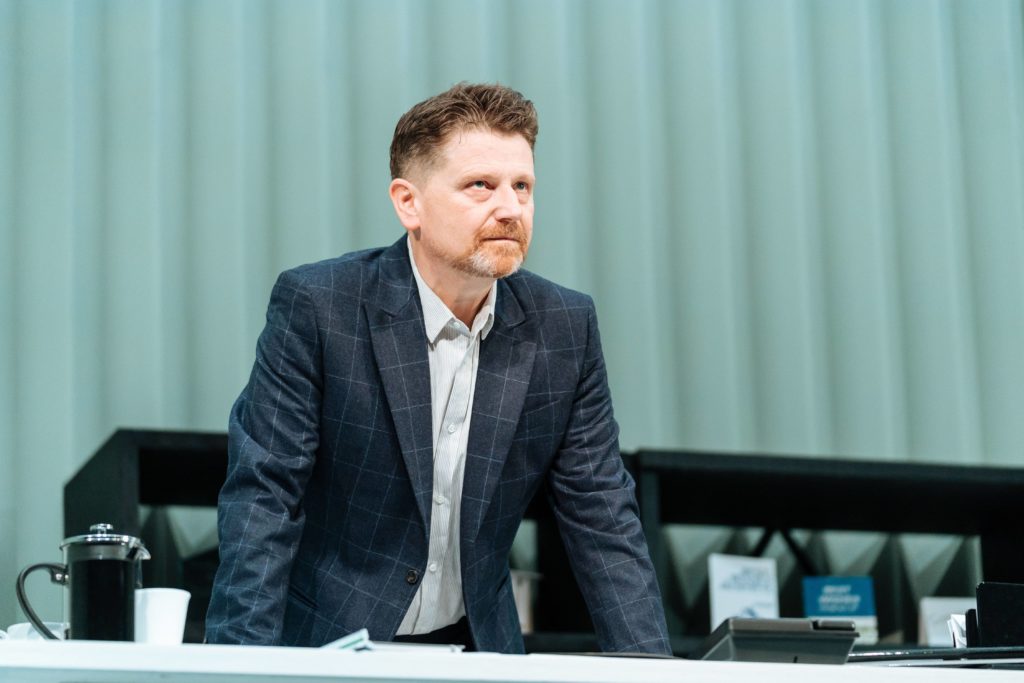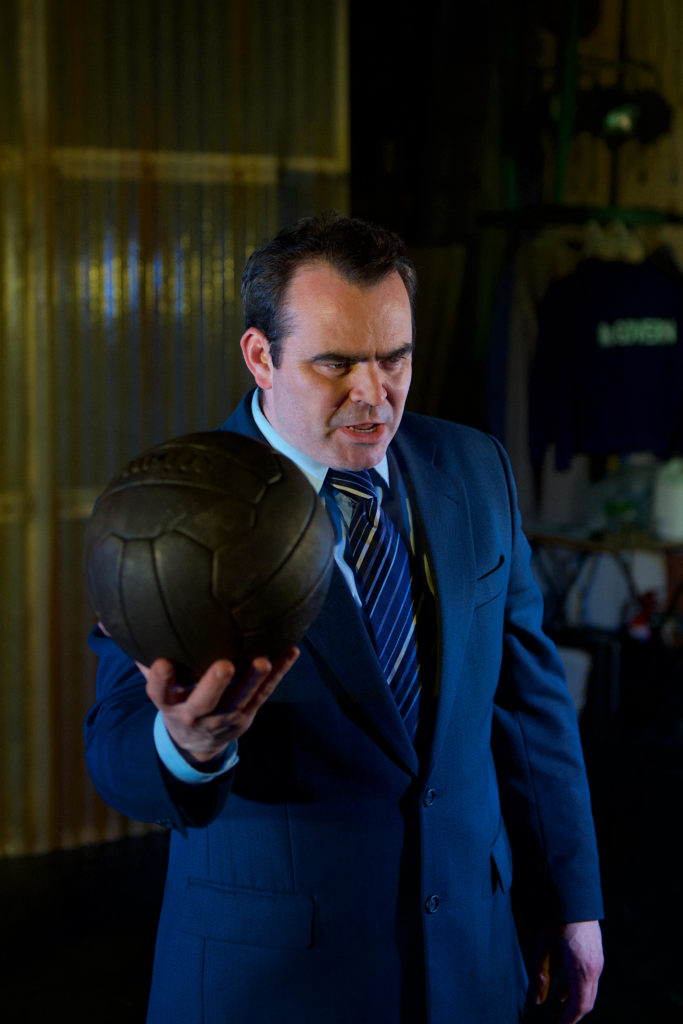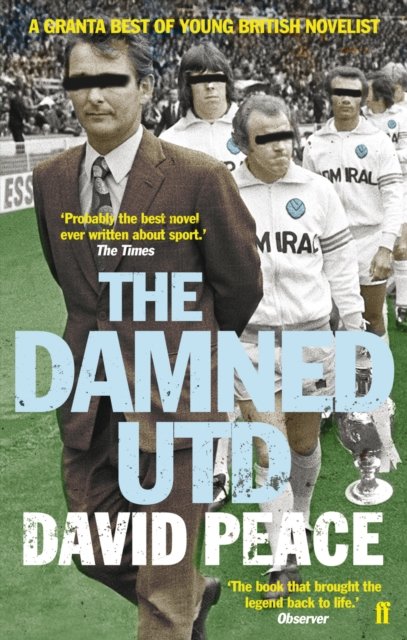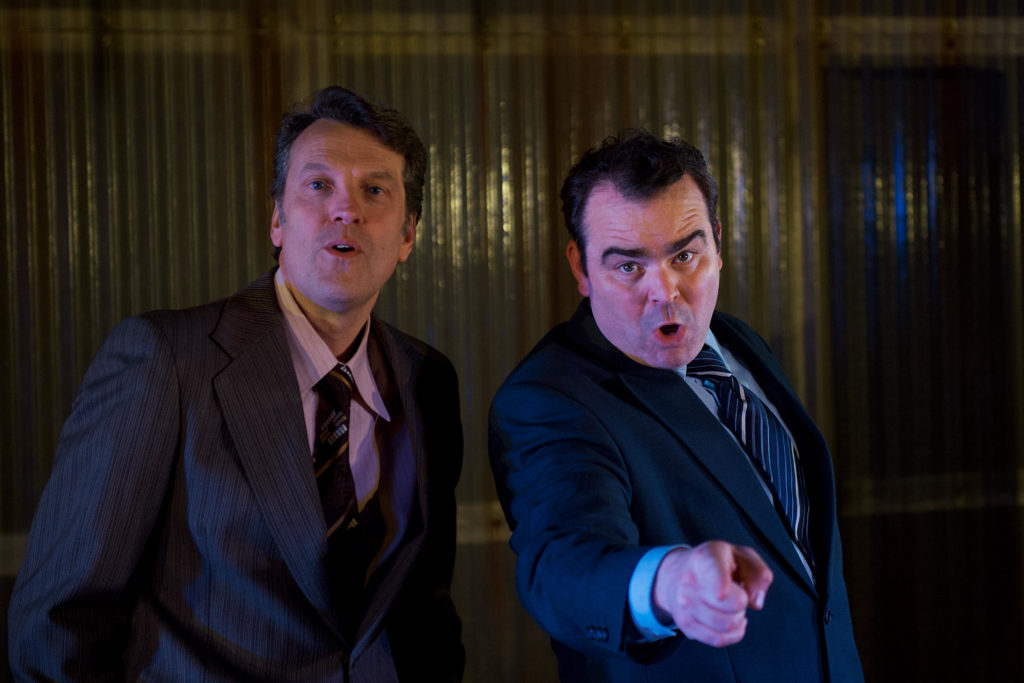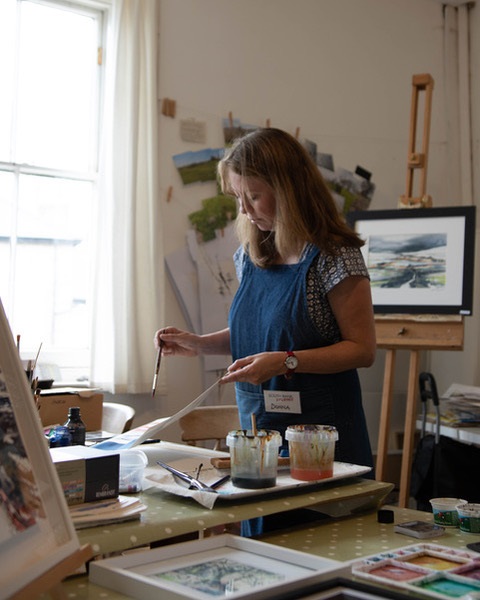
Artist Donna Maria Taylor at work in her “bright and airy” Studio 1 at South Bank Studios, York. Picture: Paul Oscar Photography
SOUTH Bank Studios resident artist Donna Maria Taylor’s latest collection of paintings will be on display at Rise@Bluebird Bakery, Acomb Road, Acomb, York, from Thursday, when she will attend the 6pm to 9pm launch.
At the invitation of Bluebird artistic curator Jo Walton and bakery co-owner and poet Nicky Kippax, her This Rugged Earth exhibition will run for eight weeks until February 12 2026.
Inspired by the world around her and her travels both here in the United Kingdom and Europe, the majority of the new work nods to her love of rugged hillscapes and mountainous landscapes.
Donna exhibits regularly, this year taking part in York Open Studios, North Yorkshire Open Studios and the Saltaire and Staithes art festivals, as well as exhibiting in Skipton, Danby, Scarborough and Lincoln.
Her Bluebird Bakery exhibition, however, brings her work much closer to home. “Therefore I’m thrilled to have my paintings exhibited here,” she says.
Alongside her professional art practice, Donna is a fully qualified and experienced tutor, offering regular art workshops in York, as well as art retreats to Southern Morocco, Andalusia in Spain and Tuscany in Italy.
Next year, she will be opening her South Bank studio for the seventh consecutive year for York Open Studios (April 18/19 and 25/26 2026), and she will exhibit in the main gallery space of York Hospital, Wiggington Road, York, from September 2026 onwards.

The poster for Donna Maria Taylor’s launch of This Rugged Earth at Rise:@Bluebird Bakery
Here, Donna discusses This Rugged Earth, her highly productive 2025 and plans for next September’s York Hospital show with CharlesHutchPress.
Does the look of Rise/Bluebird Bakery influence your choice of artworks to be shown there?
“Only in terms of scaling up the size of some of my paintings to fill the space. Given that I’m used to painting large backdrops in the theatre though, going a little bigger is no real problem. It just means more paint and bigger brushes!
“I do think that the colour palette I’ve been using recently compliments Bluebird’s interiors, but I’m not someone who creates original artwork to match a room. My work is personal to me and hopefully forms a cohesive collection, no matter where it’s shown.”
What draws you to rugged hillscapes and mountainous landscapes?
“Something within me I guess – maybe it stems from walks I used to enjoy as a child in the Peak District…or family holidays in the Lake District and North Wales? I also spent three winter seasons working as a ski instructor in the Austrian Alps when I was younger, so maybe that’s it?

Loch Long, 2025, by Donna Maria Taylor
“I love the drama of rugged landscapes, the fresh air and the connection you have with nature. Although I don’t think I could live permanently in the countryside, I’ll often spend my spare time there – sketching, en-plein-air painting, walking or mountain biking with family and friends.”
Where have you travelled in Europe recently?
“I’ve been lucky enough to travel through quite a few places – Germany, France, Switzerland, Austria – mainly because I chose the ‘slow travel’ option to reach my art retreat destinations.
“I also came back from Italy via Slovenia this time: a place I’ve never visited before. The scenery there is stunning, although you do have to be aware of bears – not something we have to worry about when wandering around in this country…”
How do the opportunities to teach in Morocco, Andalusia and Tuscany come about? What do your sessions cover?
“They come via word of mouth and recommendations really. My first Moroccan holiday came about when I tripped and broke my foot whilst working on stage in the theatre back in 2018, meaning I couldn’t walk for several months.

Hole Of Horcum, 2025, by Donna Maria Taylor
“I had a lot of time on my hands and was stuck at home all day, so what was I to do? Make exciting plans for the future, of course!
“I’d already run a couple of art holidays in the UK, so going further afield and combining my love of art and travel felt like the perfect next step. By that point, I’d also had more than 20 years’ experience teaching adults, so I was used to working with a wide range of groups and abilities.
“Sketchbooks have always played an important role on the retreats because they allow you to get out and explore. When you’re somewhere new, that’s essential – so that you really get a sense of the place.
“The sketchbook becomes a sort of visual diary; a real record of your time spent there. Sketchbooks also make the retreats accessible to everyone, from complete beginners onwards.
“I encourage the use of a range of media in them, including watercolour, collage and acrylics. Of course, some people prefer to focus on more finished pieces, and that’s absolutely fine too. As an experienced educator you learn to adapt to each person’s needs.”

La Tania, 2025, by Donna Maria Taylor
What do your art classes and workshops cover?
“There’s a wide range of media and techniques: watercolours, inks, acrylic, print, collage, pastels and oils. I try to encourage learners to experiment, play with the mediums and really develop their own style, but observational drawing is also an important and fundamental part of it all too. It’s all about ‘learning to see’ and creating your own visual language.
“I think coming from a theatre background really has given me a multi-disciplinary approach to both my art and my teaching.”
How did your exhibitions in 2025 compare and contrast: Skipton, Danby, Scarborough, Lincoln, York Open Studios, North Yorkshire Open Studios (NYOS), Saltaire, Staithes and York Hospital (from November 2025 to February 2026)? It sounds like a very busy, very productive year.
“Yes, I perhaps packed a little too much into my calendar this year, but I do like to keep busy. The exhibitions organised through NYOS, York Hospital and the gallery were fantastic for getting my work out in front of new audiences, but festivals and events are quite different because you get to meet and engage with the people who want to talk to you about your work, so it becomes far more interactive and personal.

Les Chenus, 2025, by Donna Maria Taylor
“Also, you’re often working alongside other artists at events too, which I love. It’s harder work but very rewarding.”
Looking ahead, what will you exhibit in the York Hospital main gallery space from next September?
“New work that hopefully doesn’t exist yet! As an artist, I’m always striving to stretch myself and find new ways of expressing myself, so the answer to that really is ‘watch this space’…”
What is the function of art in a hospital?
“Having art in hospitals genuinely makes a difference to the lives of patients, visitors and staff alike. I know this from personal experience but also from the lovely messages people sometimes send me to tell me how much seeing my work has meant to them or made their day.”
Donna Maria Taylor: back story
ORIGINALLY from South Yorkshire, Donna completed Art Foundation course after A-levels, followed by degree in Multi-disciplinary Design.
Began career in Stoke-on-Trent as textile and ceramic tile/mural designer before gaining a distinction in her Postgraduate Diploma in Theatre Design.
Led to long and varied career in theatre design and production, allowing her to draw on wide range of creative skills. Worked in theatres across UK and abroad before moving to York in 2000 to take up post of full-time scenic artist at West Yorkshire Playhouse, Leeds.
Continues to work regularly with Yorkshire theatres, including Leeds Playhouse and York Theatre Royal, where she served as prop maker and workshop facilitator for this summer’s community production, His Last Report.
Well known for creating large-scale animal puppets that first appeared in the York Minster Mystery Plays, From Darkness Into Light, in 2016.
Alongside her theatre work, Donna contributes to community art projects, including two pieces inspired by the work of artist John Piper, now on display at Southlands Methodist Church.
Based at Studio 1, South Bank Studios, Southlands Methodist Church, Bishopthorpe Road,
York, where you can visit her by appointment (donnataylorart@icloud.com) .
Join her mailing list at https://donnamariataylor.us20.list-manage.com/subscribe?u=f53feedf07e7c7ef532cecaba&id=a9ce963475 to be the first to learn of her latest art news, including information on new courses, workshops and art holidays to Morocco, Spain and Italy.
View Donna’s paintings and learn more about her extensive career in the arts at: www.donnamariataylor.com. She is on Facebook: @DonnaTaylorArt; Instagram: @donnataylorart.

